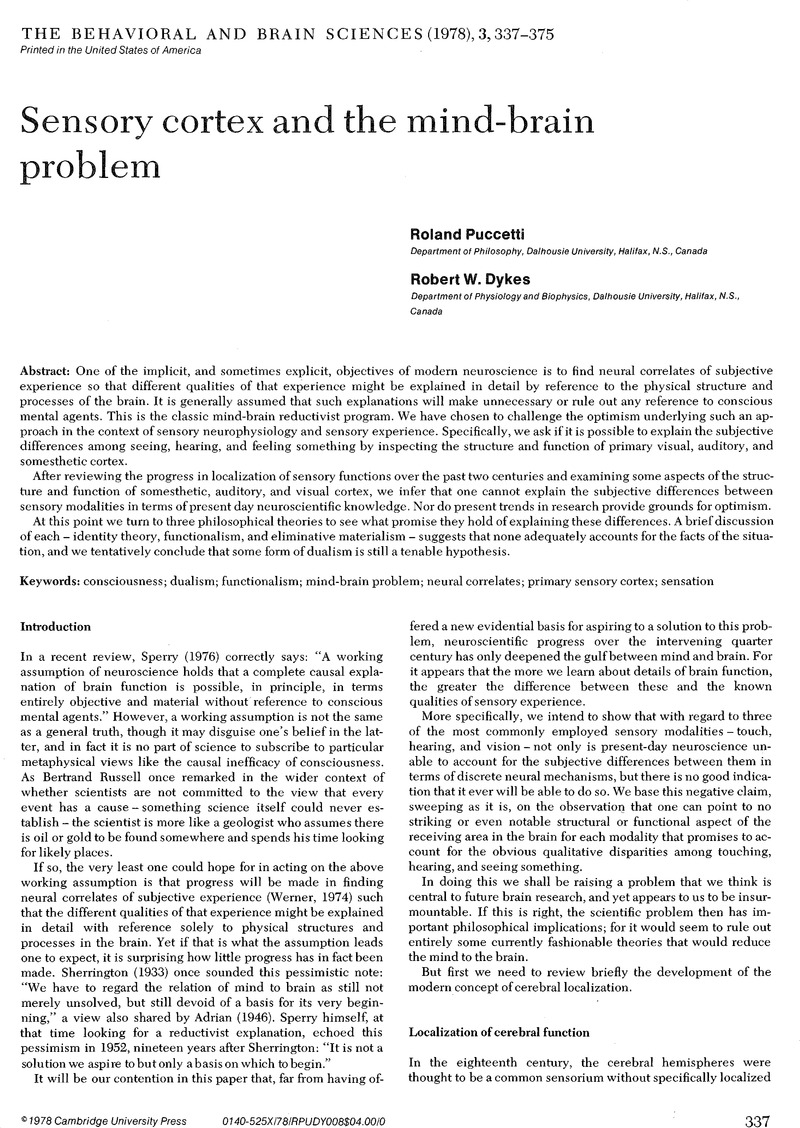Eccles, John,
Dewan, E. M., and others. The role of scientific results in theories of mind and brain: a conversation among philosophers and scientists, In:
Globus, G.,
Maxwell, G., &
Savodnik, I. (eds.),
Consciousness and the Brain: A Scientific and Philosophical Inquiry.
Plenum Press,
New York,
1976.
Google Scholar 